afterLoad (456.22KB) (434μs)
afterInitialise (1.27MB) (34.88ms)
afterRoute (870.38KB) (20.82ms)
beforeRenderComponent com_tags (20.52KB) (252μs)
afterRenderComponent com_tags (1.31MB) (111ms)
afterDispatch (27KB) (10.09ms)
beforeRenderRawModule mod_articles_category (READ MORE...) (388.12KB) (30.48ms)
Before Access::preloadComponents (all components) (56.7KB) (505μs)
After Access::preloadComponents (all components) (103.05KB) (3.39ms)
Before Access::getAssetRules (id:8 name:com_content) (840B) (16μs)
After Access::getAssetRules (id:8 name:com_content) (7.05KB) (35μs)
afterRenderRawModule mod_articles_category (READ MORE...) (5.7KB) (174ms)
beforeRenderRawModule mod_tags_popular (Search) (4.81KB) (25μs)
afterRenderRawModule mod_tags_popular (Search) (3.09KB) (98.73ms)
beforeRenderRawModule mod_custom (Remember to download Heart Healthy Seniors) (816B) (30μs)
afterRenderRawModule mod_custom (Remember to download Heart Healthy Seniors) (4.86KB) (220μs)
beforeRenderRawModule mod_custom (Get additionel and more detailed knowledge ) (752B) (14μs)
afterRenderRawModule mod_custom (Get additionel and more detailed knowledge ) (1.67KB) (1.26ms)
beforeRenderRawModule mod_custom (BOOST YOUR IMMUNE DEFENSE) (608B) (22μs)
afterRenderRawModule mod_custom (BOOST YOUR IMMUNE DEFENSE) (928B) (36μs)
beforeRenderRawModule mod_custom (Are you taking supplements) (736B) (11μs)
afterRenderRawModule mod_custom (Are you taking supplements) (1.03KB) (21μs)
beforeRenderRawModule mod_custom (Antiaging) (720B) (9μs)
afterRenderRawModule mod_custom (Antiaging) (1.02KB) (27μs)
beforeRenderRawModule mod_custom (Exercise) (720B) (11μs)
afterRenderRawModule mod_custom (Exercise) (1.02KB) (18μs)
beforeRenderRawModule mod_custom (Check this before you buy a Q10 product) (752B) (10μs)
afterRenderRawModule mod_custom (Check this before you buy a Q10 product) (944B) (18μs)
beforeRenderRawModule mod_custom (Chronic fatigue tied Alan to his bed but Q10 capsules saved him:) (245.53KB) (4.3ms)
afterRenderRawModule mod_custom (Chronic fatigue tied Alan to his bed but Q10 capsules saved him:) (960B) (43μs)
beforeRenderModule mod_custom (Chronic fatigue tied Alan to his bed but Q10 capsules saved him:) (768B) (4μs)
afterRenderModule mod_custom (Chronic fatigue tied Alan to his bed but Q10 capsules saved him:) (1.3KB) (57μs)
beforeRenderRawModule mod_custom (Cholesterol-lowering without side effects:) (368B) (12μs)
afterRenderRawModule mod_custom (Cholesterol-lowering without side effects:) (2.19KB) (23μs)
beforeRenderModule mod_custom (Cholesterol-lowering without side effects:) (752B) (2μs)
afterRenderModule mod_custom (Cholesterol-lowering without side effects:) (1.28KB) (29μs)
beforeRenderModule mod_articles_category (READ MORE...) (21.32KB) (1.35ms)
afterRenderModule mod_articles_category (READ MORE...) (1.25KB) (44μs)
beforeRenderModule mod_tags_popular (Search) (5.17KB) (13μs)
afterRenderModule mod_tags_popular (Search) (1.27KB) (24μs)
beforeRenderModule mod_custom (Remember to download Heart Healthy Seniors) (1.17KB) (11μs)
afterRenderModule mod_custom (Remember to download Heart Healthy Seniors) (1.3KB) (22μs)
beforeRenderModule mod_custom (Get additionel and more detailed knowledge ) (368B) (9μs)
afterRenderModule mod_custom (Get additionel and more detailed knowledge ) (1.3KB) (20μs)
beforeRenderModule mod_custom (BOOST YOUR IMMUNE DEFENSE) (224B) (9μs)
afterRenderModule mod_custom (BOOST YOUR IMMUNE DEFENSE) (1.28KB) (20μs)
beforeRenderModule mod_custom (Are you taking supplements) (352B) (9μs)
afterRenderModule mod_custom (Are you taking supplements) (1.28KB) (20μs)
beforeRenderModule mod_custom (Antiaging) (336B) (8μs)
afterRenderModule mod_custom (Antiaging) (1.27KB) (20μs)
beforeRenderModule mod_custom (Exercise) (336B) (9μs)
afterRenderModule mod_custom (Exercise) (1.25KB) (20μs)
beforeRenderModule mod_custom (Check this before you buy a Q10 product) (352B) (9μs)
afterRenderModule mod_custom (Check this before you buy a Q10 product) (1.28KB) (19μs)
beforeRenderRawModule mod_menu (Main menu-US) (20.94KB) (524μs)
afterRenderRawModule mod_menu (Main menu-US) (152.66KB) (3.44ms)
beforeRenderModule mod_menu (Main menu-US) (720B) (4μs)
afterRenderModule mod_menu (Main menu-US) (4.36KB) (57μs)
beforeRenderRawModule mod_languages (Sprogskift) (3.44KB) (19μs)
afterRenderRawModule mod_languages (Sprogskift) (26.8KB) (2.45ms)
beforeRenderModule mod_languages (Sprogskift) (720B) (5μs)
afterRenderModule mod_languages (Sprogskift) (5.31KB) (21μs)
beforeRenderRawModule mod_finder () (6.34KB) (11μs)
afterRenderRawModule mod_finder () (214.16KB) (5.69ms)
beforeRenderModule mod_finder () (704B) (5μs)
afterRenderModule mod_finder () (5.79KB) (33μs)
beforeRenderRawModule mod_custom () (6.62KB) (137μs)
afterRenderRawModule mod_custom () (22.64KB) (878μs)
beforeRenderModule mod_custom () (704B) (6μs)
afterRenderModule mod_custom () (1.23KB) (48μs)
beforeRenderRawModule mod_menu (Main menu-US) (5.07KB) (102μs)
afterRenderRawModule mod_menu (Main menu-US) (5.8KB) (647μs)
beforeRenderModule mod_menu (Main menu-US) (720B) (3μs)
afterRenderModule mod_menu (Main menu-US) (1.25KB) (40μs)
beforeRenderRawModule mod_languages (Sprogskift Mobil) (912B) (16μs)
afterRenderRawModule mod_languages (Sprogskift Mobil) (3.89KB) (2.68ms)
beforeRenderModule mod_languages (Sprogskift Mobil) (720B) (6μs)
afterRenderModule mod_languages (Sprogskift Mobil) (1.27KB) (36μs)
beforeRenderRawModule mod_finder () (2.3KB) (11μs)
afterRenderRawModule mod_finder () (6.29KB) (527μs)
beforeRenderModule mod_finder () (704B) (5μs)
afterRenderModule mod_finder () (1.23KB) (45μs)
beforeRenderRawModule mod_custom () (8.66KB) (176μs)
afterRenderRawModule mod_custom () (904B) (141μs)
beforeRenderModule mod_custom () (704B) (3μs)
afterRenderModule mod_custom () (2.43KB) (26μs)
beforeRenderRawModule mod_custom () (688B) (81μs)
afterRenderRawModule mod_custom () (896B) (96μs)
beforeRenderModule mod_custom () (704B) (2μs)
afterRenderModule mod_custom () (2.71KB) (22μs)
afterRender (229.71KB) (12.34ms)
| 1 x afterRenderRawModule mod_articles_category (READ MORE...) (5.7KB) (33.23%) | 173.70ms |
| 1 x afterRenderComponent com_tags (1.31MB) (21.19%) | 110.74ms |
| 1 x afterRenderRawModule mod_tags_popular (Search) (3.09KB) (18.89%) | 98.73ms |
| 1 x afterInitialise (1.27MB) (6.67%) | 34.88ms |
| 1 x beforeRenderRawModule mod_articles_category (READ MORE...) (388.12KB) (5.83%) | 30.48ms |
| 1 x afterRoute (870.38KB) (3.98%) | 20.82ms |
| 1 x afterRender (229.71KB) (2.36%) | 12.34ms |
| 1 x afterDispatch (27KB) (1.93%) | 10.09ms |
| 1 x afterRenderRawModule mod_finder () (214.16KB) (1.09%) | 5.69ms |
| 1 x beforeRenderRawModule mod_custom (Chronic fatigue tied Alan to his bed but Q10 capsules saved him:) (245.53KB) (0.82%) | 4.30ms |
| 1 x afterRenderRawModule mod_menu (Main menu-US) (152.66KB) (0.66%) | 3.44ms |
| 1 x After Access::preloadComponents (all components) (103.05KB) (0.65%) | 3.39ms |
| 1 x afterRenderRawModule mod_languages (Sprogskift Mobil) (3.89KB) (0.51%) | 2.68ms |
| 1 x afterRenderRawModule mod_languages (Sprogskift) (26.8KB) (0.47%) | 2.45ms |
| 1 x beforeRenderModule mod_articles_category (READ MORE...) (21.32KB) (0.26%) | 1.35ms |
| 1 x afterRenderRawModule mod_custom (Get additionel and more detailed knowledge ) (1.67KB) (0.24%) | 1.26ms |
| 1 x afterRenderRawModule mod_custom () (22.64KB) (0.17%) | 878μs |
| 1 x afterRenderRawModule mod_menu (Main menu-US) (5.8KB) (0.12%) | 647μs |
| 1 x afterRenderRawModule mod_finder () (6.29KB) (0.1%) | 527μs |
| 1 x beforeRenderRawModule mod_menu (Main menu-US) (20.94KB) (0.1%) | 524μs |
| 1 x Before Access::preloadComponents (all components) (56.7KB) (0.1%) | 505μs |
| 1 x afterLoad (456.22KB) (0.08%) | 434μs |
| 1 x beforeRenderComponent com_tags (20.52KB) (0.05%) | 252μs |
| 1 x afterRenderRawModule mod_custom (Remember to download Heart Healthy Seniors) (4.86KB) (0.04%) | 220μs |
| 1 x beforeRenderRawModule mod_custom () (8.66KB) (0.03%) | 176μs |
| 1 x afterRenderRawModule mod_custom () (904B) (0.03%) | 141μs |
| 1 x beforeRenderRawModule mod_custom () (6.62KB) (0.03%) | 137μs |
| 1 x beforeRenderRawModule mod_menu (Main menu-US) (5.07KB) (0.02%) | 102μs |
| 1 x afterRenderRawModule mod_custom () (896B) (0.02%) | 96μs |
| 1 x beforeRenderRawModule mod_custom () (688B) (0.02%) | 81μs |
| 1 x afterRenderModule mod_custom (Chronic fatigue tied Alan to his bed but Q10 capsules saved him:) (1.3KB) (0.01%) | 57μs |
| 1 x afterRenderModule mod_menu (Main menu-US) (4.36KB) (0.01%) | 57μs |
| 1 x afterRenderModule mod_custom () (1.23KB) (0.01%) | 48μs |
| 1 x afterRenderModule mod_finder () (1.23KB) (0.01%) | 45μs |
| 1 x afterRenderModule mod_articles_category (READ MORE...) (1.25KB) (0.01%) | 44μs |
| 1 x afterRenderRawModule mod_custom (Chronic fatigue tied Alan to his bed but Q10 capsules saved him:) (960B) (0.01%) | 43μs |
| 1 x afterRenderModule mod_menu (Main menu-US) (1.25KB) (0.01%) | 40μs |
| 1 x afterRenderRawModule mod_custom (BOOST YOUR IMMUNE DEFENSE) (928B) (0.01%) | 36μs |
| 1 x afterRenderModule mod_languages (Sprogskift Mobil) (1.27KB) (0.01%) | 36μs |
| 1 x After Access::getAssetRules (id:8 name:com_content) (7.05KB) (0.01%) | 35μs |
| 1 x afterRenderModule mod_finder () (5.79KB) (0.01%) | 33μs |
| 1 x beforeRenderRawModule mod_custom (Remember to download Heart Healthy Seniors) (816B) (0.01%) | 30μs |
| 1 x afterRenderModule mod_custom (Cholesterol-lowering without side effects:) (1.28KB) (0.01%) | 29μs |
| 1 x afterRenderRawModule mod_custom (Antiaging) (1.02KB) (0.01%) | 27μs |
| 1 x afterRenderModule mod_custom () (2.43KB) (0%) | 26μs |
| 1 x beforeRenderRawModule mod_tags_popular (Search) (4.81KB) (0%) | 25μs |
| 1 x afterRenderModule mod_tags_popular (Search) (1.27KB) (0%) | 24μs |
| 1 x afterRenderRawModule mod_custom (Cholesterol-lowering without side effects:) (2.19KB) (0%) | 23μs |
| 1 x beforeRenderRawModule mod_custom (BOOST YOUR IMMUNE DEFENSE) (608B) (0%) | 22μs |
| 1 x afterRenderModule mod_custom () (2.71KB) (0%) | 22μs |
| 1 x afterRenderModule mod_custom (Remember to download Heart Healthy Seniors) (1.3KB) (0%) | 22μs |
| 1 x afterRenderRawModule mod_custom (Are you taking supplements) (1.03KB) (0%) | 21μs |
| 1 x afterRenderModule mod_languages (Sprogskift) (5.31KB) (0%) | 21μs |
| 1 x afterRenderModule mod_custom (Get additionel and more detailed knowledge ) (1.3KB) (0%) | 20μs |
| 1 x afterRenderModule mod_custom (Are you taking supplements) (1.28KB) (0%) | 20μs |
| 1 x afterRenderModule mod_custom (Antiaging) (1.27KB) (0%) | 20μs |
| 1 x afterRenderModule mod_custom (Exercise) (1.25KB) (0%) | 20μs |
| 1 x afterRenderModule mod_custom (BOOST YOUR IMMUNE DEFENSE) (1.28KB) (0%) | 20μs |
| 1 x afterRenderModule mod_custom (Check this before you buy a Q10 product) (1.28KB) (0%) | 19μs |
| 1 x beforeRenderRawModule mod_languages (Sprogskift) (3.44KB) (0%) | 19μs |
| 1 x afterRenderRawModule mod_custom (Check this before you buy a Q10 product) (944B) (0%) | 18μs |
| 1 x afterRenderRawModule mod_custom (Exercise) (1.02KB) (0%) | 18μs |
| 1 x Before Access::getAssetRules (id:8 name:com_content) (840B) (0%) | 16μs |
| 1 x beforeRenderRawModule mod_languages (Sprogskift Mobil) (912B) (0%) | 16μs |
| 1 x beforeRenderRawModule mod_custom (Get additionel and more detailed knowledge ) (752B) (0%) | 14μs |
| 1 x beforeRenderModule mod_tags_popular (Search) (5.17KB) (0%) | 13μs |
| 1 x beforeRenderRawModule mod_custom (Cholesterol-lowering without side effects:) (368B) (0%) | 12μs |
| 3 x beforeRenderModule mod_custom () (704B) (0%) | 11μs |
| 1 x beforeRenderRawModule mod_custom (Are you taking supplements) (736B) (0%) | 11μs |
| 1 x beforeRenderRawModule mod_custom (Exercise) (720B) (0%) | 11μs |
| 1 x beforeRenderModule mod_custom (Remember to download Heart Healthy Seniors) (1.17KB) (0%) | 11μs |
| 1 x beforeRenderRawModule mod_finder () (6.34KB) (0%) | 11μs |
| 1 x beforeRenderRawModule mod_finder () (2.3KB) (0%) | 11μs |
| 1 x beforeRenderRawModule mod_custom (Check this before you buy a Q10 product) (752B) (0%) | 10μs |
| 2 x beforeRenderModule mod_finder () (704B) (0%) | 10μs |
| 1 x beforeRenderModule mod_custom (Get additionel and more detailed knowledge ) (368B) (0%) | 9μs |
| 1 x beforeRenderModule mod_custom (BOOST YOUR IMMUNE DEFENSE) (224B) (0%) | 9μs |
| 1 x beforeRenderModule mod_custom (Are you taking supplements) (352B) (0%) | 9μs |
| 1 x beforeRenderModule mod_custom (Check this before you buy a Q10 product) (352B) (0%) | 9μs |
| 1 x beforeRenderRawModule mod_custom (Antiaging) (720B) (0%) | 9μs |
| 1 x beforeRenderModule mod_custom (Exercise) (336B) (0%) | 9μs |
| 1 x beforeRenderModule mod_custom (Antiaging) (336B) (0%) | 8μs |
| 2 x beforeRenderModule mod_menu (Main menu-US) (720B) (0%) | 7μs |
| 1 x beforeRenderModule mod_languages (Sprogskift Mobil) (720B) (0%) | 6μs |
| 1 x beforeRenderModule mod_languages (Sprogskift) (720B) (0%) | 5μs |
| 1 x beforeRenderModule mod_custom (Chronic fatigue tied Alan to his bed but Q10 capsules saved him:) (768B) (0%) | 4μs |
| 1 x beforeRenderModule mod_custom (Cholesterol-lowering without side effects:) (752B) (0%) | 2μs |
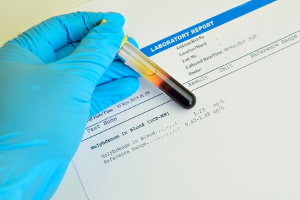 Molybdenum is essential for liver detoxification and plays a key role in breaking down proteins, purines, and lipids. It also supports the synthesis of vitamin B12. Studies even suggest that a molybdenum deficiency or poor utilization of the nutrient increases the risk of gout, non-alcoholic fatty liver disease (NAFLD), and hepatocellular carcinoma, which is a type of liver cancer.
Molybdenum is essential for liver detoxification and plays a key role in breaking down proteins, purines, and lipids. It also supports the synthesis of vitamin B12. Studies even suggest that a molybdenum deficiency or poor utilization of the nutrient increases the risk of gout, non-alcoholic fatty liver disease (NAFLD), and hepatocellular carcinoma, which is a type of liver cancer.







 Weight-challenged children and teenagers have grown to become a global health threat, and the problem became even worse during the corona pandemic. Overweight is linked to a number of health problems, including non-alcoholic fatty liver disease that sets the stage for type 2 diabetes and other serious ailments. In a new review article that is published in Nutrients, researchers look closer at how a carbohydrate-restricted diet or the traditional Mediterranean diet can help to counteract the development of overweight and non-alcoholic fatty liver disease. Also, supplementation with vitamin E, vitamin D, fish oil, and probiotics can block the development of non-alcoholic fatty liver via different metabolic parameters.
Weight-challenged children and teenagers have grown to become a global health threat, and the problem became even worse during the corona pandemic. Overweight is linked to a number of health problems, including non-alcoholic fatty liver disease that sets the stage for type 2 diabetes and other serious ailments. In a new review article that is published in Nutrients, researchers look closer at how a carbohydrate-restricted diet or the traditional Mediterranean diet can help to counteract the development of overweight and non-alcoholic fatty liver disease. Also, supplementation with vitamin E, vitamin D, fish oil, and probiotics can block the development of non-alcoholic fatty liver via different metabolic parameters.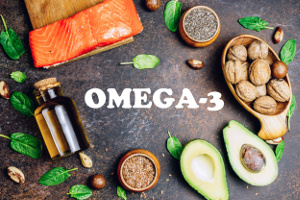 Non-alcoholic fatty liver disease (NAFLD) that is linked to overweight and type 2 diabetes may eventually cause critical liver inflammation, liver fibrosis, and liver cancer. The diet plays a major role, and scientists from Oregon State University have observed that the omega-3 fatty acids that we get from oily fish are able to fight this harmful liver condition. This has enormous therapeutic value because there are currently no available therapies. It is also important to avoid altogether or limit your intake of refined carbohydrates and refined omega-6 fatty acids from plant oil.
Non-alcoholic fatty liver disease (NAFLD) that is linked to overweight and type 2 diabetes may eventually cause critical liver inflammation, liver fibrosis, and liver cancer. The diet plays a major role, and scientists from Oregon State University have observed that the omega-3 fatty acids that we get from oily fish are able to fight this harmful liver condition. This has enormous therapeutic value because there are currently no available therapies. It is also important to avoid altogether or limit your intake of refined carbohydrates and refined omega-6 fatty acids from plant oil.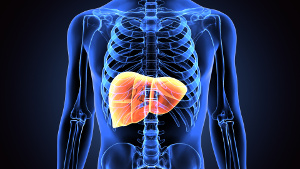 Non-alcoholic fatty liver disease (NAFLD) is a liver disease that is spreading like a bushfire. NAFLD is associated with obesity and metabolic syndrome, which is an early stage of type 2 diabetes. What you eat plays a major role, and a large Chinese study has actually demonstrated that higher dietary intake of vitamin C can improve blood sugar levels and the liver function. It is also wise to lower your intake of carbohydrates, especially fructose that can put a huge strain on the liver and turn it into a virtual “fat factory”.
Non-alcoholic fatty liver disease (NAFLD) is a liver disease that is spreading like a bushfire. NAFLD is associated with obesity and metabolic syndrome, which is an early stage of type 2 diabetes. What you eat plays a major role, and a large Chinese study has actually demonstrated that higher dietary intake of vitamin C can improve blood sugar levels and the liver function. It is also wise to lower your intake of carbohydrates, especially fructose that can put a huge strain on the liver and turn it into a virtual “fat factory”.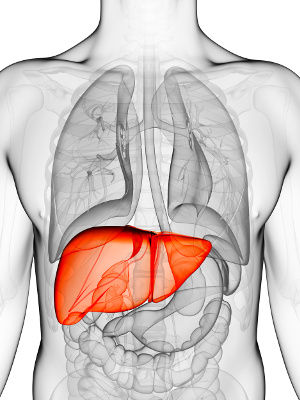 Non-alcoholic fatty liver disease (NAFLD) and alcoholic fatty liver disease are associated with the development of other liver diseases, obesity, diabetes, cardiovascular diseases, and cancer. Diet and drinking habits play a major role. Magnesium deficiency also seems to increase the risk of cardiovascular disease and other complications, particularly in individuals with liver-related metabolic disorders, according to a large population study published in Nutrients.
Non-alcoholic fatty liver disease (NAFLD) and alcoholic fatty liver disease are associated with the development of other liver diseases, obesity, diabetes, cardiovascular diseases, and cancer. Diet and drinking habits play a major role. Magnesium deficiency also seems to increase the risk of cardiovascular disease and other complications, particularly in individuals with liver-related metabolic disorders, according to a large population study published in Nutrients.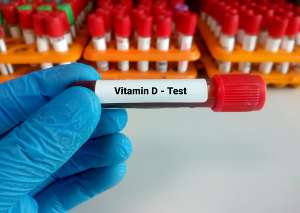 Many people unwittingly suffer from a disease called non-alcoholic fatty liver disease, which is related to overweight and diabetes. The diet plays a major role, and a Chinese study shows that vitamin B12 is of particular importance. The scientists believe that the body’s vitamin B12 metabolism holds a therapeutic potential in relation to detecting and treating the disease and the complications that follow in the wake of it.
Many people unwittingly suffer from a disease called non-alcoholic fatty liver disease, which is related to overweight and diabetes. The diet plays a major role, and a Chinese study shows that vitamin B12 is of particular importance. The scientists believe that the body’s vitamin B12 metabolism holds a therapeutic potential in relation to detecting and treating the disease and the complications that follow in the wake of it.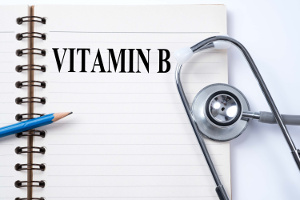 Non-alcoholic fatty liver disease (NAFLD) is an insidious disease that is spreading like a bushfire, and it is typically seen in connection with overweight. Many people with the disease develop a type of liver inflammation and scarring that can be potentially life-threatening. According to a study that is published in Journal of Hepatology, supplementation with vitamin B12 and folic acid (vitamin B9) can counteract the development of inflammation and scarring by lowering levels of the amino acid homocysteine. The scientists behind the study looked closer at homocysteine’s role in the pathogenicity of the disease.
Non-alcoholic fatty liver disease (NAFLD) is an insidious disease that is spreading like a bushfire, and it is typically seen in connection with overweight. Many people with the disease develop a type of liver inflammation and scarring that can be potentially life-threatening. According to a study that is published in Journal of Hepatology, supplementation with vitamin B12 and folic acid (vitamin B9) can counteract the development of inflammation and scarring by lowering levels of the amino acid homocysteine. The scientists behind the study looked closer at homocysteine’s role in the pathogenicity of the disease. "After about one week of taking the Q10 supplement I could feel a huge difference," says 23-year old Alan Piccini, who has been suffering from extreme fatigue and muscle aches ever since he was a child.
"After about one week of taking the Q10 supplement I could feel a huge difference," says 23-year old Alan Piccini, who has been suffering from extreme fatigue and muscle aches ever since he was a child. “Taking capsules with co-enzyme Q10 has freed me of the severe side effects of my cholesterol lowering medicine,” Mrs Franken explains.
“Taking capsules with co-enzyme Q10 has freed me of the severe side effects of my cholesterol lowering medicine,” Mrs Franken explains.